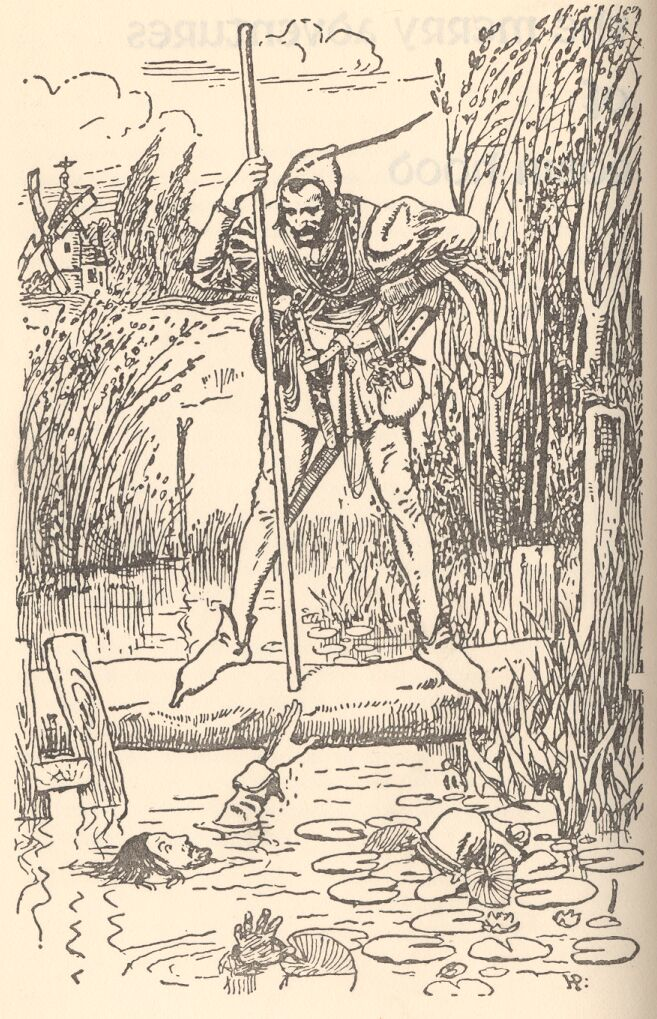
Robin Hood and Friar Tuck
14th and 15th Century Ballads
The first literary reference to Robin Hood appeared in 14th century England in the form of recorded ballads sung about a British yeoman (a freeholder) who, as the head of a band of thieves, steals from the cruel rich and gives to the needy poor while finding, with his band, asylum from the Sheriff of Nottingham in Sherwood Forest.
In the above scene Robin Hood has defeated Friar Tuck for the right to cross a bridge on which only one person can pass at a time. After the friar's defeat Robin Hood invites the good friar to become a member of his band.
My article entitled "The Modern Anglo-American Robin Hood - A Time Past, or Still an Uncharted Future" shows that politicians who would use the heavy hand of government to steal from the rich to give to the poor are not of the same caliber of person as the legendary Robin Hood. Further, it shows that these same politicians, rather than helping the poor, perform a great disservice, not only to the poor, but to society as a whole.
Indeed, rather than going after the criminals who obtained their wealth unjustly, these politicians corroborate with them to perpetuate the immoral system that they, together, have created.